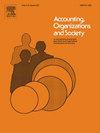2008年金融危机后,银行董事会层面的控制机制发生了哪些变化?描述性研究
IF 4
2区 管理学
Q1 BUSINESS, FINANCE
引用次数: 0
摘要
2008年金融危机后,金融危机调查委员会(FCIC)发现了银行董事会治理的主要缺陷,这些缺陷导致了系统性风险管理的失败。本研究采用管理控制框架,实证研究了95家美国大型银行控股公司(2000-2015年)董事会层面“过程控制”和“投入控制”机制的变化,并将其与1452家非银行公司进行了对比。我们的研究结果表明,2008年后的大多数改善发生在“流程控制”方面,例如,首席风险官(CRO)的任命从危机前的53%增加到危机后的91%,更多的银行建立了专门的风险委员会,并确定了负责声誉管理的委员会。我们还发现,在与领域知识相关的“输入控制”方面取得了进展,具有风险管理经验的新银行董事增加了16%,具有其他相关领域知识的董事显著增加。我们观察到,在提高董事会成员表达不同观点的能力或为其角色投入更多时间方面,控制机制的变化有限或没有变化。我们的研究结果表明,某些类型控制的改进似乎优先于其他类型的控制,这对解释和实施公司治理和控制机制的变化具有影响。本文章由计算机程序翻译,如有差异,请以英文原文为准。
What board-level control mechanisms changed in banks following the 2008 financial crisis? A descriptive study
Following the 2008 financial crisis, the Financial Crisis Inquiry Commission (FCIC) identified major shortcomings in bank board governance, contributing to systemic risk management failures. This study adapts a management control framework and empirically examines changes in board-level “process control” and “input control” mechanisms in 95 large U.S. bank holding companies (2000–2015) and contrasts these with 1,452 nonbanks. Our findings indicate that most post-2008 improvements occurred in “process controls,” e.g. Chief Risk Officer (CRO) appointments increased from 53 % pre-crisis to 91 % post-crisis, with significantly more banks establishing a dedicated risk committee and identifying the committee responsible for reputation management. We also find progress in “input control” related to domain knowledge with an increase of 16 % in new bank directors with prior risk management experience, and significant increase in directors with other relevant domain knowledge. We observed limited or no change in control mechanisms related to improving the board members’ ability to voice different perspectives or commit more time to their role. Our results show that improvements in certain types of controls seem to have taken precedence over others which have implications for explaining and implementing changes in corporate governance and control mechanisms.
求助全文
通过发布文献求助,成功后即可免费获取论文全文。
去求助
来源期刊

Accounting Organizations and Society
BUSINESS, FINANCE-
CiteScore
7.80
自引率
6.40%
发文量
38
期刊介绍:
Accounting, Organizations & Society is a major international journal concerned with all aspects of the relationship between accounting and human behaviour, organizational structures and processes, and the changing social and political environment of the enterprise.
 求助内容:
求助内容: 应助结果提醒方式:
应助结果提醒方式:


